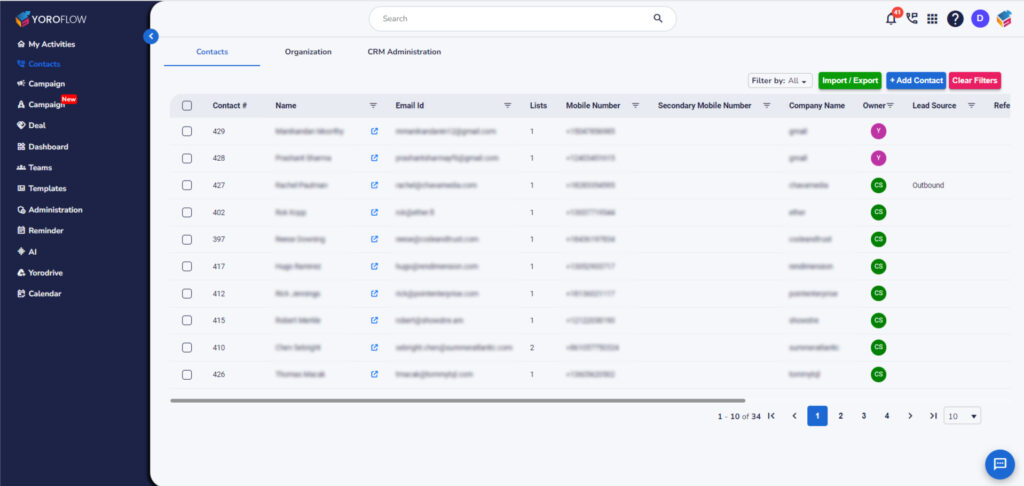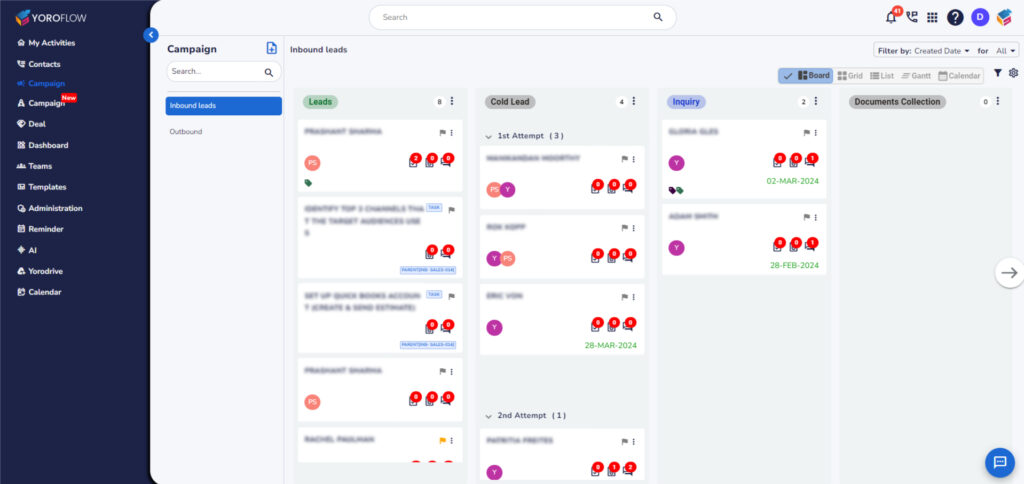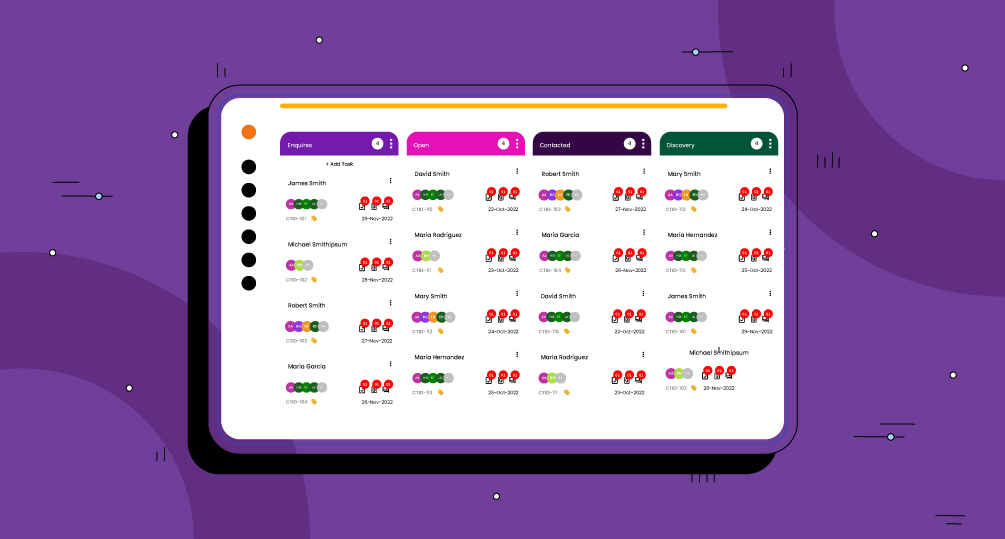Table of Contents
Every industry has different needs and requirements. Based on their requirements, the workflows will also vary. So, the CRM software also has various functionalities to fulfill all the industry needs.
Industries need to choose the right CRM software that suits their needs. Choosing the right platform among the numerous availabilities is not an easy task.
This article elaborates on CRM software, its features, and how to choose the right CRM software.
CRM software
There are various CRM tools available in the market. CRM software is designed to streamline the CRM system including lead management, customer engagement, follow-up, invoice generation and tracking, and report generation.
CRM software provides various features that serve generic requirements and industry specifications. CRM software like YoroCRM provides several built-in components and templates that can be used as per the requirements. It also provides facilities to create their own templates by using the pre-defined components available in the tool.
Features of CRM software
Lead management
CRM platform automates the lead management processes like lead generation, segmenting, prioritizing leads, and lead engagement. This feature enhances the efficiency of client management which helps in increasing sales.

Document management
CRM database maintains all documents related to customer information. This database ensures that the customer information is stored securely. And it provides access to the team members who require it. Access will not be given to everyone since these databases have personal details about the customers.
Sales pipeline
CRM tools provide a streamlined sales pipeline by segmenting leads based on customer interests, behavior, needs, and budget. This helps the sales CRM team to focus more on positive leads without wasting their time identifying them. This helps the team to spend enough time on positive leads and increase sales.
User-friendly
These CRM tools are designed as user-friendly platforms that can be understood and used easily. These tools have both sales and customer ends. Customer CRM software with a simple design attracts more customers to make use of it. Customers choose simple CRM which does not waste their valuable time. Also, the task boards provide visual representation for the sales team to easily assign, implement, track, and close the deals.

Integration
CRM software integrates various other tools and applications to manage other related processes like inventory management, customer tracking, invoice generation, invoice tracking, and analyzing customer behavior. This CRM integration ensures that the salesperson can perform multiple tasks through application.
Reporting
CRM reporting provides various insights into market trends, customer requirements, inventory system, and sales engagement processes. With these valuable insights the CRM team can make better decisions.
CRMs for different industries
- CRM for financial institutions: Financial institutions like banks and insurance companies need to provide personalized customer service. These financial institutions use CRM platforms for lead management, track client’s status, maintaining centralized data, and maintaining better communication and collaboration.
- CRM for educational institutions: Educational institutions use CRM platforms for streamlining their admission process, conducting campaigns, analyzing market trends, and generating reports.
- CRM for customer service-related industries: Customer service oriented-industries like real-estate, hotels, lawyers, and retailers seek to maintain a good customer relationship. To enhance their customer relationship, these industries use CRM platforms to automate database management, engage customers, organize appointments, instant response to their enquiries, and track customer conversations.
- CRM for non-profit industries: The non-profitable industries like charities, religious organizations, social welfare organizations, and recreation clubs use CRM tools for streamlining their processes, personalize outreach, conducting campaigns, enhance communication with donors, and track campaign outputs.
- CRM for recruitment: Recruitment processes are long and have a lot of repetitive tasks. To enhance recruitment, the firms use CRM platforms to automate repetitive tasks like posting job openings on various platforms, screening candidates’ profile, conducting preliminary tests, scheduling interviews, and generating reports.
How to choose the right CRM software?
Before choosing the CRM software, there are a few things that need to be focused on.
Make clear in your purpose
While choosing the CRM software, you should be clear for what purpose the CRM software is needed. Whether it is for specific industrial applications or for generic applications. Based on these purposes, the right CRM platform should be chosen.
Understand customer needs
CRM software should be chosen by also considering customer needs. Because this tool is also used by the customer at the other end. So, it should be chosen by considering both ends. Customer CRM software also should be user-friendly. The complexity of CRM software will also reduce sales.
Check flexibility and scalability
The CRM tool must be flexible as it can be modified easily if there are any requirement changes. Also, the tool should be scalable as the company grows, it should adapt to the changes in the size of the team without major changes in the tool or workflows.
Consider security measures
These platforms deal with the customer’s sensitive information, security measures must be checked properly before choosing it. The information must be handled and stored securely. Access should be given only to those who need it for further processes. Access also should be prioritized for those who can edit and who can only view the data.
Check integrations
Before choosing the CRM tool, check whether it can integrate the necessary applications that are needed for other related purposes. The salesperson cannot move to various applications for each purpose. This may consume more time and data loss may occur. So, the CRM tool should provide integrations with various other tools.
Consider your budget
Budget is an important factor to achieve success. Make calculations and understand your estimated budget to avoid unexpected loss. The CRM tool should be chosen as it can provide all the necessary features within the budget.
Choose your right CRM software
CRM platform provides many features and benefits to boost sales. Choose the right CRM tool that can fulfill all your needs and is a user-friendly tool for both the sales team and the customer. YoroCRM offers contact management, task boards to visualize the process, track and monitor the status, and a customizable dashboard. By leveraging the features of YoroCRM, the sales team can customize the tool as per their requirements. It is more flexible and scalable and can easily adapt to the changes in the workflow.




